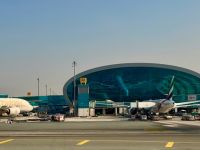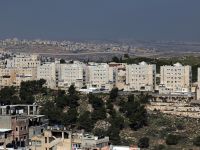An era came to an end on June 10th, with the death of Syrian President Hafez al-Assad after almost 30 years in power. For much of that period, Syria had enjoyed relative domestic stability, but at an often heavy price. Assad had ruled with an iron fist—ready to suppress opposition, with brutality if necessary.
The sole candidate to succeed the late president is his son Bashar, a 34-year-old ophthalmologist, who had been groomed for the job since 1994, following the death of his older brother and the original heir-apparent in a motorcar accident. In preparation for his eventual succession, he experienced an accelerated career as an army officer, and then as a government technocrat, where he was assigned tasks that made him a popular public figure, such as leading an anti-corruption drive and introducing the Internet into the Syrian market.
Before his death, Hafez al-Assad devoted himself to ensuring his son’s smooth entry into the corridors of power, in part by neutralizing potential rivals who were capable of threatening Bashar’s future rule of the nation. However, with his father now gone, Bashar faces several uncertainties, including the still substantial influence of veteran members of the military and security apparatus, whose continued presence creates a potential opposition force against the young head of state.
A possible victim of this set of circumstances—for the short term at least—is the peace negotiations with Israel. It was widely agreed that if the former president were to have signed a peace agreement with its neighbor to the south, the Syrian people would have deemed it acceptable. But now, the consensus of experts is that the new leader, during his first year in office, will lack both the resources and the force of personality to bring his people towards a comprehensive peace treaty.
This will place domestic affairs at the top of his agenda, with the country’s economic predicament being first on the list. Syria’s economic performance in recent years has been uninspiring, with sluggish growth rates and national resources becoming considerably scarce. The country faces the hardship of creating new jobs for the younger generation after earlier attempts to diversify and modernize the economy failed. Officially the unemployment rate stood at 9.5 percent at the end of 1999, but true unemployment was thought to be about 20 percent, since many job seekers had crossed over the border to Lebanon to earn a living.
The state of foreign trade is also dismal. Total exports in 1999 amounted to less than $3 billion, and consisted mainly of crude petroleum and cotton. Imports during the same period were almost $3.8 billion.
A major barrier to Syria’s economic development has been a policy of seclusion that the regime adopted decades ago. One of its effects was keep away potential investors from this promising market, with a 17 million-strong population. Incoming foreign investment during 1999 was said to be $100 million, and most of it from Syrian expatriates and Arab entrepreneurs.
Syria’s current government, which was appointed shortly before Hafez al-Assad’s death, has been trying to address the foreign investment issue by relaxing restrictions on land ownership. But, although it is a step in the right direction, many other measures still need to be implemented in order to revive the fragile economy. The banking sector, which is still owned and operated by the government, needs to be extensively reformed. Setting up a stock exchange was also an idea resurrected by the new government, but the establishment of a bourse has been championed many times in the past and then blocked by the conservative elements in Syria’s political leadership.
During his 30 years in power, Hafez al-Assad established a powerful position for his country on the Middle East political map, proving to the world a final resolution to Arab-Israeli conflict was not possible without a settlement of the Syrian-Israeli dispute. But, by taking leading role at the head of the rejectionist front, Assad sacrificed much of Syria’s national interest. He made his country into one of the most isolated states in the world, and terms like globalization, liberalization, privatization and even the Internet and cellphones remain anomalies for most Syrians.
The economy and its related infrastructure need profound modification in order to bring prosperity to the ordinary wage-earner, who earns an annual average income of about $1,200. Bashar has hinted at a proclivity for modernity and liberalism, but it is still unknown whether he will be able to stand his ground against the conservatives now that his powerful father is gone.







